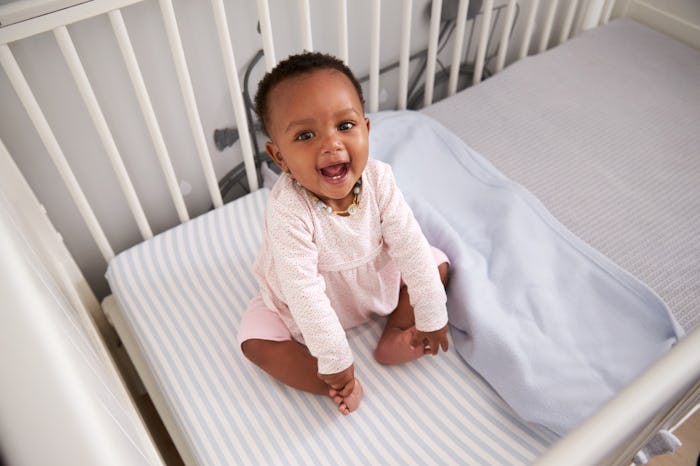Ear Plugs, Anyone?

Why Does My Baby Love To Shriek Like A Pterodactyl?
It’s normal (and there’s nothing you can do about it).
Sitting in their high chair, covered in their favorite food. Crawling across the floor en route to pull the dog’s tail. Laying in their crib playing with their chubby little feet. Babies who love to screech will sound off just about anywhere while doing anything. If you’re constantly wondering, “Why does my baby shriek all the time?”, there’s actually a really good reason. It’s a normal part of their vocal development and something they’ll grow out of in time. The only downside is, well, there’s really not anything you can do to get them to knock it off while you wait.
“I love a good little shrieking baby,” says Morgan Leonard, M.S., CCC-SLP, speech and language pathologist at Children’s of Alabama. “I know parents are like, ‘It’s so loud,” but it’s part of normal speech and language development and what we call vocal play.”
Your baby constantly shrieking is another step toward saying their first word.
Babies start finding their voices, cooing, and making the most adorable sounds ever, as early as 2 to 4 months old, Leonard says. Around 4 to 6 months of age, they’ll pick up more fun new skills, like laughing, blowing raspberries, and letting out excited squeals. And yes, if they’re having fun with the shrieks, you may hear them more than the other sounds.
“All of these things are ways that they explore their voice and start developing control over sounds they’re making to eventually become speech and language,” Leonard says. “It’s completely normal and not something that parents should be worried about, and really [it] should be encouraged that babies want to play with their voices and make fun sounds with their voices.”
Making some sounds — like blowing raspberries — helps babies practice their mouth position, and how changing it can change the sounds they make, Leonard explains. With shrieking, they might be experimenting with their volume (though, you probably already knew that). It’s also an easier sound to make than many others; just open up and let ‘er rip.
“It’s much easier to just open your mouth wide and make a sound instead of making a harder consonant sound, which requires you to move more of your mouth. So it’s just an initial milestone before we have all of the motor control or even the knowledge to imitate or produce specific sounds,” she says.
When do babies normally start shrieking & when do they stop?
If you scroll through parenting forums, moms and dads generally ask about their constantly squealing babies around the ages of 7 to 8 months old (though it can certainly start much earlier). Pterodactyl shrieks may begin as early as 4 months of age, Leonard says, and it should fade as they learn new babbling skills they want to practice (around 6 to 8 months of age).
“Really you could hear the shrieking all through that, and maybe even once we get to 12 months, you may hear it every now and then as a way to play, but you should start to expect some true words around 12 months of age,” she says.
The only time your baby shrieking constantly should be concerning is if your little one reaches 12 months old and is having trouble with “more purposeful sounds,” Leonard says. Infants this age can be expected to say simple words (like Mama and Dada), make some consonant sounds, or use a random word consistently to mean something (like always calling their cup a “da,” Leonard explains).
“If a parent becomes concerned that they’re not starting to babble and use more purposeful sounds by about 12 months of age and all we have are just vocalizations, they can always reach out to a speech pathologist and we can be a partner for them in doing an evaluation and giving them guidance. There’s never any harm in asking for help,” says Leonard.
So, pop in your ear plugs and remind yourself that all the shrieking will eventually come to an end. For now, it’s just the latest and greatest trick your baby has, and it’s healthy for them to practice it.
Expert:
Morgan Leonard, M.S., CCC-SLP, speech and language pathologist at Children’s of Alabama